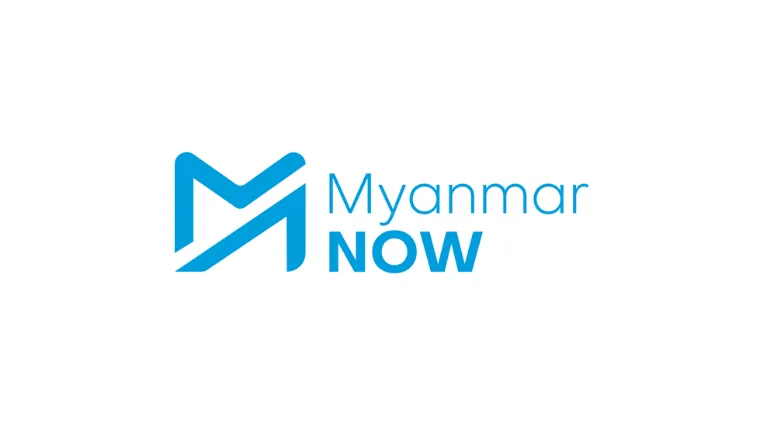Experts condemn Thai foreign minister’s meeting with Aung San Suu Kyi
13 July 2023


Thailand’s foreign affairs minister Don Pramudwinai attends the 18th Bay of Bengal Initiative for Multi-Sectoral Technical and Economic Cooperation (BIMSTEC) foreign ministers meeting in Colombo, Sri Lanka, on March 29, 2022. (EPA-EFE/Chamila Karunarathne)
Academics speculate that the Myanmar junta is showing favouritism towards countries that have demonstrated themselves to be more supportive of the military regime
by
Academics and commentators have expressed outrage at revelations that outgoing Thai foreign minister (FM) Don Pramudwinai travelled to Myanmar in secret and met with jailed elected leader Aung San Suu Kyi.
Speaking on the sidelines of the Association of Southeast Asian Nations (ASEAN) foreign ministers’ meeting in Jakarta on Wednesday, Don confirmed the meeting and claimed that Suu Kyi, who is being held in an annex of a prison in Naypyitaw, was “in good health” and “encouraged dialogue” to help resolve the crisis in Myanmar.
He also told reporters the engagement was in line with ASEAN’s plan to achieve peace in the country, describing it as “an approach of the friends of Myanmar, who would like to see a peaceful settlement.”
The visit, which took place on July 9 and also involved a meeting with junta leader Min Aung Hlaing, marks the first confirmed encounter between a high-ranking official from an ASEAN member country and Suu Kyi since the military seized power from her democratically elected government in February 2021. And while Don, who is also Thailand’s deputy prime minister, did not provide a detailed account of what was discussed, the nature and timing of the meeting has drawn fierce backlash.
Much of that has to do with the fact that Don’s actions seem to subvert ASEAN’s efforts to resolve the conflict in Myanmar—in particular, the so-called “five-point consensus,” which calls for a cessation of violence in Myanmar, constructive dialogue between the coup regime and its opponents, and permission for an ASEAN envoy representing the rotating chairmanship of the bloc to meet with all relevant parties. Importantly, that chairmanship is currently held not by Thailand, but Indonesia.
“Don’s dealings with the State Administration Council [Myanmar’s military-led junta] undermine ASEAN’s five-point consensus and undercut Indonesia’s chairmanship,” Thitinan Pongsudhirak, a professor of political science and international relations at Bangkok’s Chulalongkorn University, told Myanmar Now.
“Even the Thai Ministry of Foreign Affairs did not know about this trip,” he added. “It raises suspicions about ulterior motives.”
Aaron Connelly, senior fellow for Southeast Asian politics and foreign policy at the International Institute for Strategic Studies, further speculated as to how and why Don was given access to Suu Kyi when so many former attempts by ASEAN have been rejected—and suggested that the junta was essentially showing favouritism towards countries that have shown themselves to be more supportive of the military regime.
“ASEAN agreed in its Five Point Consensus in April 2021 that its chair would ‘facilitate mediation’ of ‘dialogue among all parties concerned.’ Three chairs since then have sought to meet Aung San Suu Kyi to fulfil this agreement. The junta has rejected all of these requests,” Connelly wrote in a Twitter thread. “By blocking ASEAN chairs’ access to Aung San Suu Kyi and while allowing Thai FM Don to meet with her, the junta is seeking to shift international diplomacy away from a forum it finds hostile to its interests and toward one that is more sympathetic.”
Further fuelling the controversy is the fact that Don belongs to an outgoing government. Thai lawmakers are gathering on Thursday to vote on whether Pita Limjaroenrat, the leader of the country’s progressive Move Forward party which won both the popular vote and the most seats in the House of Representatives in the recent election, is set to become Thailand’s new prime minister. If the Move Forward party’s victory is honoured, Don’s party will no longer be in power.
“It is a highly unusual trip because of FM Don’s expired term,” said Thitinan. “He is part of an outgoing government without authority and mandate to engage at such a high level in the same week that the Thai parliament will vote on a new prime minister.”
Controversy surrounding Don’s dealings with the Myanmar military has been building for weeks. On June 18, 340 Myanmar civil society organisations signed an open letter condemning a secretive meeting that Don organised with the junta, labelling it “a complete affront to the people of Myanmar.”
“This secretive initiative of the outgoing Thai Foreign Minister is in blatant contradiction with the ASEAN consensus on non-invitation of representatives of the military junta in high-level meetings,” the letter read. “This decision was never agreed upon by ASEAN Member States, nor did the Indonesian Government, the incumbent Chair of ASEAN, initiate this meeting.”
“In organising this meeting, the caretaker Government of Thailand is acting without the mandate and any consultation with the ASEAN Chair.”
That meeting divided ASEAN, going ahead on June 19 without the attendance of key member states Indonesia, Singapore, and Malaysia.
See the original post here.
Announcements
21 May 2025
Open letter: Malaysia must lead ASEAN with principle, not hypocrisy, to address the Myanmar crisis

Progressive Voice is a participatory rights-based policy research and advocacy organization rooted in civil society, that maintains strong networks and relationships with grassroots organizations and community-based organizations throughout Myanmar. It acts as a bridge to the international community and international policymakers by amplifying voices from the ground, and advocating for a rights-based policy narrative.